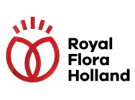In Honselersdijk, Amazone Plants grows many varieties of anthuriums in different colors and pot sizes year-round on almost 6 hectares. In recent years, the company has put a lot of effort into sustainability. Co-owner Bas van Zijl explains what the company is doing in terms of energy, reuse of water and CO2, and making packaging more sustainable.

Amazone Plants was founded by Fred van Zijl - Bas' father - and his business partner Lex Scheffers. Now the three of them run the company, with the help of 25 employees. "We have some temporary workers, but most are permanent employees," Bas says. "It's a nice club of people and we have very little turnover. For us, that works very nicely, because it creates a cozy atmosphere during work and in the canteen."
Future-proof thanks to geothermal energy
The company has made several investments in recent years to become more sustainable. For instance, Amazone Plants is co-owner of Aardwarmte Vogelaer, a joint venture that supplies energy from a geothermal well to 18 greenhouse companies in Honselersdijk, Poeldijk and Monster. Bas: "60% of our heat consumption for the greenhouse, where we have a tropical climate, comes from there. This saves us a considerable amount of gas. Our share of geothermal heat will be even more this year because Vogelaer is working on a second installation. We are in a favorable location here. After all, it is not possible to drill for geothermal heat everywhere."
In the longer term, this investment will pay off. "Geothermal heat is not cheap, but you are your own supplier, so to speak, and therefore less dependent on gas. So you build in a certain security that you can continue to grow sustainably. That's how we keep our business future-proof."
Self-sufficient when there is a lot of sun
"We had 500 solar panels installed on the roofs of our sheds last year. We mist a lot in summer because we need high humidity in the greenhouse due to the tropical climate. The misting motor runs on electricity we generate from the solar panels. For misting, we use osmosis water. We are now to the point where we are self-sufficient in energy in summer when there is a lot of sunshine."
The company also invested in LED lighting last year. The traditional SON-T lamps have been replaced by LED lamps, which use a lot less energy.
Reuse of water and CO2
Amazon Plants also reuses as much water as possible. "We water our plants at the beginning of the table that slopes very slightly, with the water running under the pots. Each pot sucks up a certain amount of water, and anything left over we collect on the other side of the table and redirect to the silo. This we clean and reuse. That way, we waste virtually no water."
As if all this were not enough, the company also reuses CO2 through the OCAP network, obtained from the Rotterdam industry. The CO2 is an important nutrient for the plants. The anthuriums grow nicer and faster, and it also prevents a lot of unnecessary CO2 emissions.
'Increasing demand from buyers'
But not only in terms of energy consumption, Amazone Plants also has an eye for sustainability when it comes to packaging. The pots, for instance, are 80% made of consumer waste. Bas: "We also put that in Floriday with the products. In general, we notice more and more demand from buyers in that area. For example, there is a demand for plastic-free (without sleeves), or recycled plastic."
Amazon Plants uses sleeves made of partially recycled plastic but also supplies some of the plants plastic-free. "Then we put them in a box without a sleeve. Only the pot is then still plastic. Many garden centers put the plants in the shop without a sleeve, so that's fine. And consumers and retailers also like to see the products in the shop without plastic. The tricky thing is just that you always need a degree of protection as well. We grow anthuriums with large flowers, which are quite sensitive to damage. You could opt for cardboard sleeves, but that again is much more expensive. We are still weighing up what is the best solution for us now for the future."
For more information: Royal FloraHolland
Royal FloraHolland
www.royalfloraholland.com
